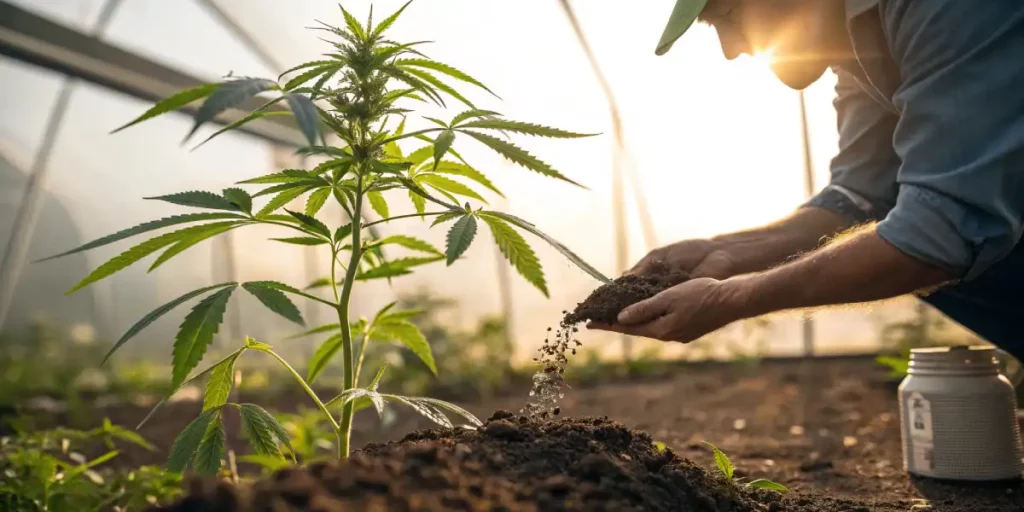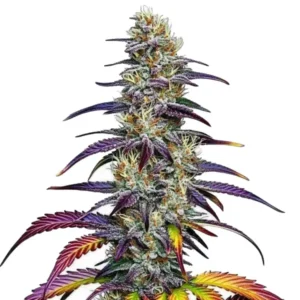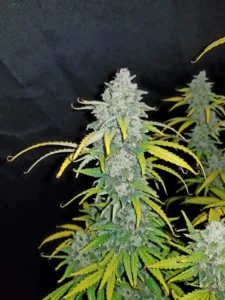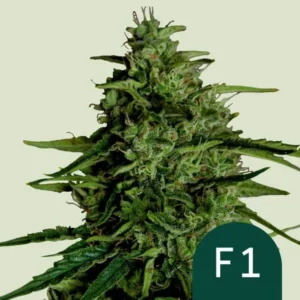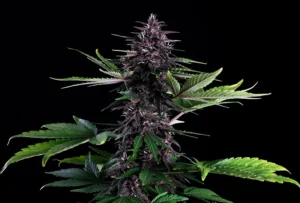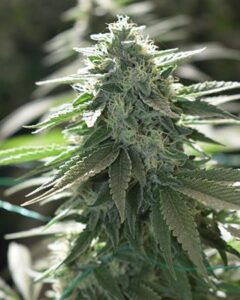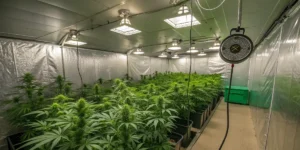When it comes to cultivating cannabis, selecting the best fertilizer for cannabis is crucial. Fertilizer provides the essential nutrients your plants need to thrive. Whether you are growing a classic strain like Blue Dream from Global Green Genetics or experimenting with something exotic, the right plant food can make all the difference.
Fertilizers come in many forms, from organic to synthetic. Organic options, like compost or manure, are derived from natural sources. They are often considered the best organic fertilizer for cannabis due to their earth-friendly nature and ability to improve soil health. Synthetic fertilizers, on the other hand, are man-made and often deliver nutrients faster.
Recommended Strains
Blue Dream
|
|
THC | 17% - 24% (Medium) |
|
|
Lineage | Blueberry x Haze |
|
|
Type | Feminized |
|
|
Height | 6.56 ft | 2 m |
|
|
Yield | High |
|
|
Yield Indoor | 1.97 oz/ft² | 600 g/m² |
|
|
Yield Outdoor | 17.64 - 24.69 oz/plant | 500 - 700 g/plant |
|
|
Flowering Time | 8 - 10 weeks |
|
|
Phenotype | 50% Indica / 50% Sativa |
|
|
Medical | Fatigue, Muscle Spasms, Stress |
|
|
Effects | Happy, Relaxed, Talkative |
|
|
Flavors | Berry, Blueberry, Mango, Sweet |
Blue Dream Autoflower
|
|
THC | 22% - 23% (Medium) |
|
|
Lineage | Blue Dream x Ruderalis |
|
|
Type | Autoflowering |
|
|
Height | 3.94 ft | 1.2 m |
|
|
Yield | High |
|
|
Yield Indoor | 1.47 - 1.97 oz/ft² | 450 - 600 g/m² |
|
|
Life Cycle | 9 - 11 weeks |
|
|
Phenotype | 25% Indica / 75% Sativa |
|
|
Effects | Happy, Creative, Relaxed |
|
|
Flavors | Cherry, Berry, Lemon, Pine |
Knowing the N-P-K ratio is key when selecting a fertilizer. This ratio stands for Nitrogen, Phosphorus, and Potassium — the three primary nutrients cannabis plants need. Nitrogen helps with leaf growth, phosphorus is vital for root development, and potassium supports overall plant health. Each growth stage of cannabis may require different ratios.
Top Nutrients for Cannabis Growth
Nitrogen, phosphorus, and potassium are the staples, but cannabis also benefits from other nutrients. These include calcium, magnesium, and sulfur, which are considered secondary nutrients. Additionally, trace elements like iron, manganese, and zinc play a part in healthy plant development.
Calcium strengthens cell walls, magnesium is crucial for photosynthesis, and sulfur aids in enzyme function. These nutrients work in harmony to support your cannabis plants through all growth stages. For example, GG4 from Global Green Genetics thrives with a balanced nutrient mix that includes these essentials.
The top nutrients for cannabis growth not only ensure a healthy plant but also influence the potency and flavor of the final product. By prioritizing a nutrient-rich environment, growers can achieve superior quality buds that stand out in taste and effect. Ensuring a consistent supply of these nutrients is essential for robust and resilient plants.
Regular monitoring and testing of soil or growing mediums can help in identifying nutrient imbalances early. This proactive approach allows for timely adjustments, ensuring that your cannabis plants receive the best fertilizer for cannabis tailored to their specific needs. A balanced nutrient profile supports not only growth but also the plant’s immune response, making it more resistant to pests and diseases.
Ideal Fertilizer Schedule for Cannabis
Following an ideal fertilizer schedule for cannabis can maximize your yield and plant health. During the vegetative stage, cannabis plants require more nitrogen to promote leafy growth. A fertilizer with a higher N-P-K ratio of nitrogen is recommended.
As plants transition to the flowering stage, they need more phosphorus and potassium. This shift supports bud development and enhances flavor profiles. A formula with a lower nitrogen ratio is typically advised at this stage. Strains like White Widow from Global Green Genetics particularly benefit from this change.
Timing and consistency are key components of an ideal fertilizer schedule for cannabis. By adhering to a structured feeding routine, growers can prevent nutrient deficiencies and optimize plant performance. This methodical approach ensures that plants receive the right nutrients at the right time.
Adjustments to the feeding schedule may be necessary based on environmental factors such as light intensity and temperature. Customizing the schedule to fit these conditions can result in the most effective cannabis plant food regimen, ensuring plants are healthy and productive throughout their lifecycle.
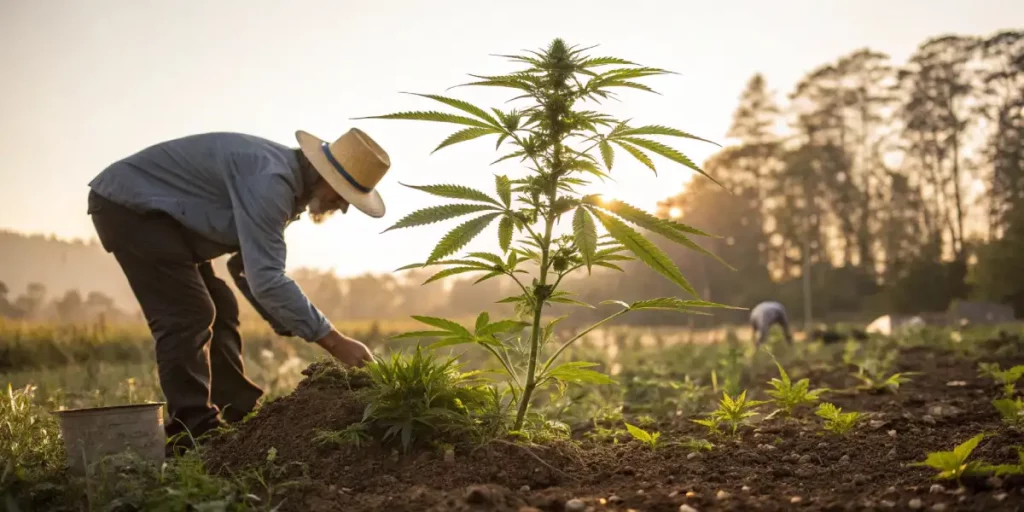
Best Practices for Feeding Cannabis
Feeding your cannabis plants the right way involves more than just picking the right fertilizer. It’s crucial to monitor the plant’s response and adjust accordingly. Over-fertilizing can cause nutrient burn, leading to leaf discoloration and reduced growth.
Start with a lower dose than recommended and gradually increase as needed. This cautious approach helps avoid overwhelming your plants. Observation is key; healthy plants will have vibrant green leaves and steady growth. If issues arise, like yellowing leaves, it might be time to reassess your feeding schedule.
Best practices for feeding cannabis also include knowing the specific needs of the strain you are cultivating. Different strains may have unique nutrient requirements or sensitivities. Researching your particular strain can provide insights into creating the best fertilizer for cannabis tailored to its needs.
Another crucial aspect is ensuring that your growing environment, including humidity and temperature, is optimal. These factors can influence nutrient uptake and overall plant health. By maintaining a stable environment, you can enhance the effectiveness of your feeding practices and achieve maximum plant potential.
Best Cannabis Fertilizer for Beginners
For those just starting, the best cannabis fertilizer for beginners is one that is easy to use and forgiving. Many beginners opt for a pre-mixed, all-purpose fertilizer that covers all the essential nutrients. These are convenient and reduce the guesswork.
Beginners should look for fertilizers labeled as “complete” or “balanced,” indicating they contain the necessary nutrients for all growth stages. It’s also wise to select products that dissolve easily in water, making them simple to apply.
Ease of use is a critical factor when selecting the best cannabis fertilizer for beginners. Products that offer clear instructions and are less prone to causing nutrient burns are ideal. This allows new growers to focus on learning plant care fundamentals without the added complexity of nutrient management.
As experience and confidence grow, beginners can experiment with more advanced nutrient solutions. This transition opens opportunities for optimizing growth conditions and increasing yield, ultimately contributing to a more rewarding cultivation experience.
Most Effective Cannabis Plant Food
The most effective cannabis plant food is one that matches the specific needs of your plant and growing conditions. Consider factors like soil quality, environmental conditions, and strain requirements when selecting a fertilizer.
High-quality soil with organic matter can reduce the need for additional fertilizers. However, if your growing medium lacks nutrients, supplementing with a robust plant food is necessary. Strains like Northern Lights from Global Green Genetics can show impressive growth with the right nutrient support.
Choosing the most effective cannabis plant food involves a balance between nutrient concentration and bioavailability. Highly concentrated fertilizers are not necessarily better if the nutrients are not readily absorbed by the plants. Focusing on products that offer both high-quality ingredients and effective nutrient delivery systems can make a significant difference.
It is also beneficial to consider the long-term health of the soil or growing medium. Sustainable practices such as incorporating the best organic fertilizer for cannabis can enhance soil structure and fertility over time, supporting continuous plant health and productivity.
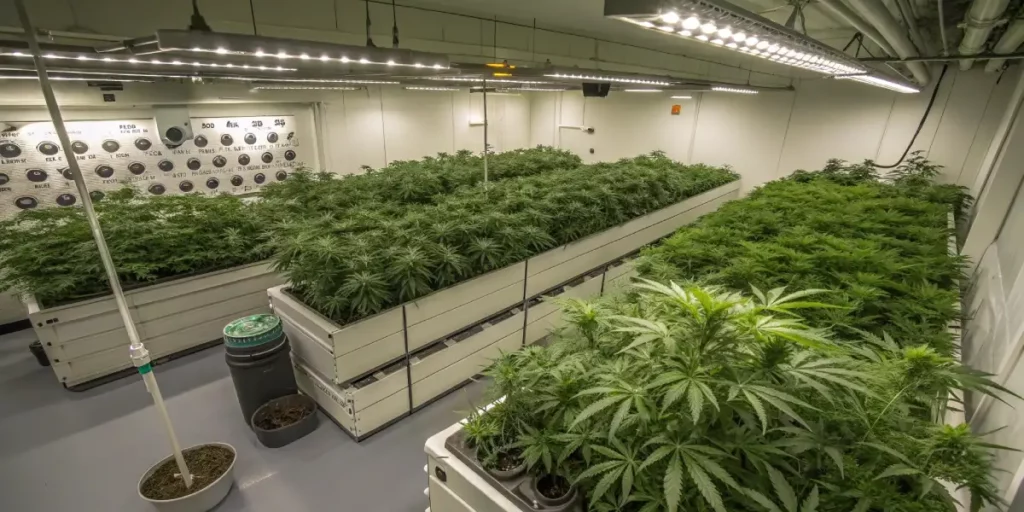
FAQs on Best Fertilizer for Cannabis
What makes a fertilizer the best for cannabis?
A fertilizer is considered the best for cannabis when it provides a balanced nutrient profile suited to the plant’s specific growth stage. It should enhance the plant’s natural growth processes without causing nutrient burn or other issues.
Choosing a fertilizer with a suitable N-P-K ratio, along with essential secondary and trace nutrients, ensures well-rounded support for your cannabis plants. It should also be easy to apply and integrate well with your existing growing setup.
The best fertilizer for cannabis often includes a combination of macronutrients and micronutrients tailored to the plant’s developmental phase. This targeted approach supports optimal growth and maximizes yield potential, resulting in healthier and more productive plants.
Additionally, the best fertilizers are those that are formulated to minimize environmental impact. Environmentally conscious growers may prioritize products that offer both effective plant nutrition and sustainable sourcing and manufacturing practices.
How often should I fertilize my cannabis plants?
The frequency of fertilization depends on several factors, including the growth stage and the type of fertilizer used. Generally, fertilizing once a week during the vegetative stage is effective, while reducing frequency during flowering can prevent overfeeding.
Always monitor your plants for signs of nutrient deficiency or excess. Adjust your schedule based on the plant’s response and environmental conditions to maintain optimal health and productivity.
Developing an ideal fertilizer schedule for cannabis involves regular observation and flexibility. By being attentive to your plants’ signals, you can fine-tune your feeding routine to achieve the best possible results, reducing waste and enhancing efficiency.
Using a calendar or journal to track feeding times and plant responses can be beneficial. This practice helps identify patterns and informs future adjustments, ensuring your cannabis cultivation remains on the right track.
Can I use organic fertilizer for cannabis?
Yes, organic fertilizers are a popular choice for many cannabis growers. They are derived from natural sources and improve soil health over time. Organic options are often considered the best organic fertilizer for cannabis due to their sustainability.
Compost, worm castings, and fish emulsion are examples of organic fertilizers that provide essential nutrients. They work well for those aiming to grow cannabis in a more environmentally friendly way.
Using organic fertilizers can also contribute to the overall flavor and aroma profile of the cannabis, often resulting in a more natural and desirable product. This is particularly important for connoisseurs who value quality over quantity.
While organic fertilizers may act more slowly than synthetic ones, their long-term benefits to soil health and plant resilience make them a worthwhile choice for many growers seeking sustainable cultivation practices.
What are the signs of nutrient deficiency in cannabis?
Nutrient deficiencies in cannabis can manifest as yellowing leaves, stunted growth, or poor bud development. Each nutrient deficiency has specific symptoms, like nitrogen deficiency causing pale leaves.
Identifying and addressing deficiencies quickly is crucial. Correcting nutrient levels with appropriate fertilizers can restore plant health and ensure a successful harvest.
Visual cues such as discolored leaves or unusual growth patterns are often the first indicators of nutrient deficiencies. Regular inspection and familiarity with these signs can help growers take swift corrective actions.
In some cases, a nutrient deficiency may not be due to lack of nutrients but rather issues with nutrient uptake. Ensuring proper pH levels and soil conditions can facilitate better absorption and prevent deficiencies from occurring.
Is it possible to over-fertilize cannabis plants?
Yes, over-fertilization is a common issue among cannabis growers. It can lead to nutrient burn, where leaves turn brown and crispy. Over-feeding can also lock out other nutrients, compounding the problem.
To avoid over-fertilization, start with lower doses and gradually increase as needed. Regularly flushing the soil with plain water can help prevent nutrient buildup and maintain a healthy growing environment.
Over-fertilization not only affects plant health but can also lead to wasted resources and increased cultivation costs. A strategic approach to feeding can mitigate these risks and contribute to a more efficient growing process.
Additionally, knowing the specific nutrient needs of your cannabis strain can help in applying the best fertilizer for cannabis without overdoing it. By matching feeding practices to plant requirements, you can achieve optimal growth with minimal risk.

